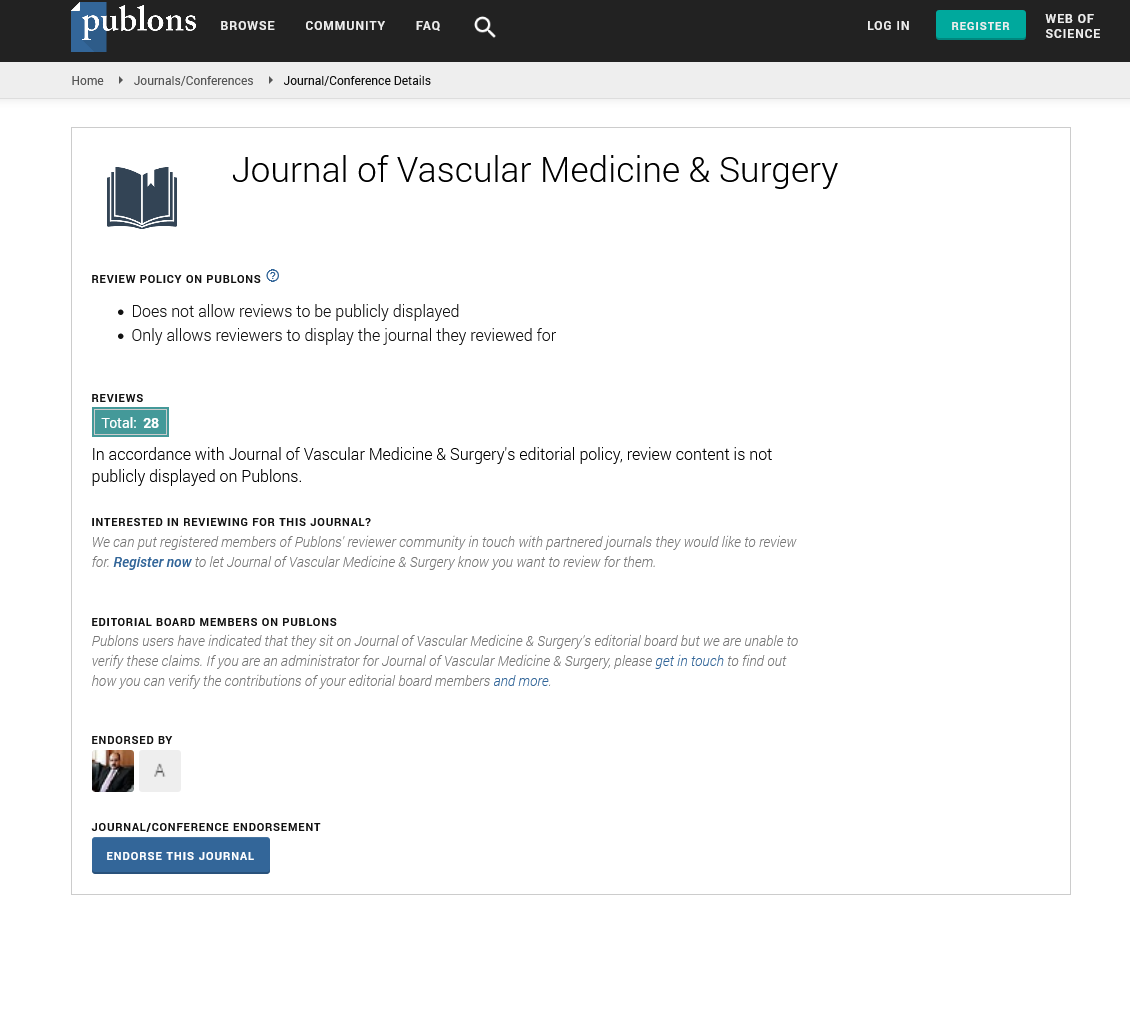Indexed In
- Open J Gate
- Academic Keys
- RefSeek
- Hamdard University
- EBSCO A-Z
- OCLC- WorldCat
- Publons
- Euro Pub
- Google Scholar
- SHERPA ROMEO
Useful Links
Share This Page
Journal Flyer

Open Access Journals
- Agri and Aquaculture
- Biochemistry
- Bioinformatics & Systems Biology
- Business & Management
- Chemistry
- Clinical Sciences
- Engineering
- Food & Nutrition
- General Science
- Genetics & Molecular Biology
- Immunology & Microbiology
- Medical Sciences
- Neuroscience & Psychology
- Nursing & Health Care
- Pharmaceutical Sciences
Abstract
Family History of Aortic or Intracranial Aneurysm is associated with Abdominal Aortic Aneurysm Rupture: An Exploratory Study
Katsuyuki Hoshina, Atsushi Akai, Kunihiro Shigematsu, Tetsuro Miyata and Toshiaki Watanabe
Objective: The purpose of this study was to examine non-dynamic and non-morphological factors that may be related to abdominal aortic aneurysm (AAA) rupture.
Methods: Of the 205 consecutive AAA patients who underwent open surgery between 2004 and 2008 in our department, comparisons were conducted between patient groups based on the following AAA types: non-ruptured “large” AAAs with a diameter ≥ 65 mm (non-rupture group; n=26) and ruptured “small” AAAs with a diameter <65 mm (rupture group; n=9).
Results: Mean age and gender were not significantly different between the 2 groups. The proportion of patients with a positive family history of abdominal aortic, thoracic aortic, or intracranial aneurysms was statistically significantly greater in the rupture group than in the non-rupture group (62% versus 1 1%; p=0.01) .
Conclusion: The present results indicate that a family history of abdominal aortic, thoracic aortic, or intracranial aneurysm might be associated with the risk of AAA rupture. Some genetic involvement in AAA rupture has been previously reported, although only a few studies have mentioned this association thus fa

